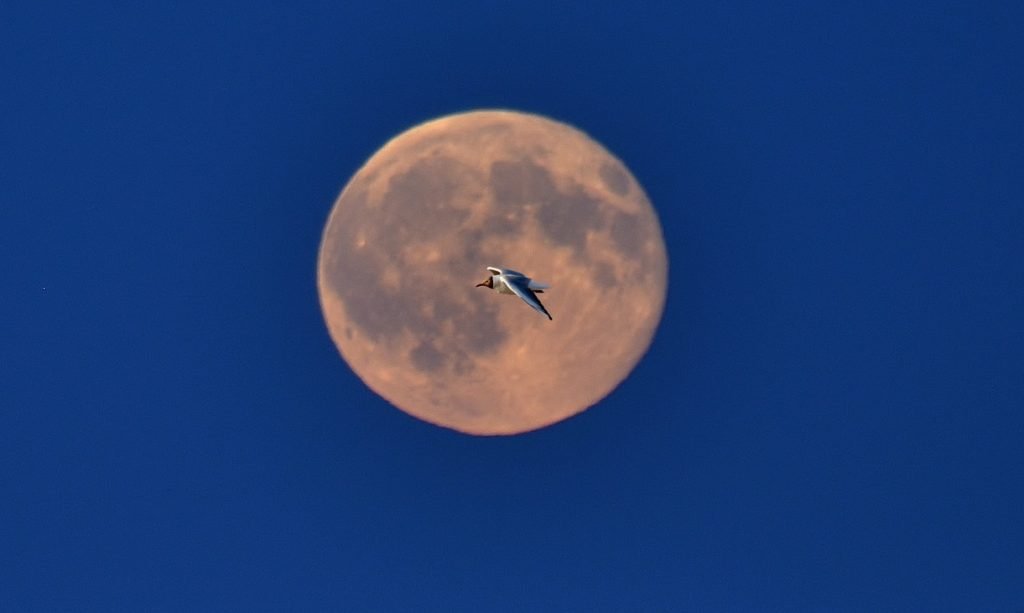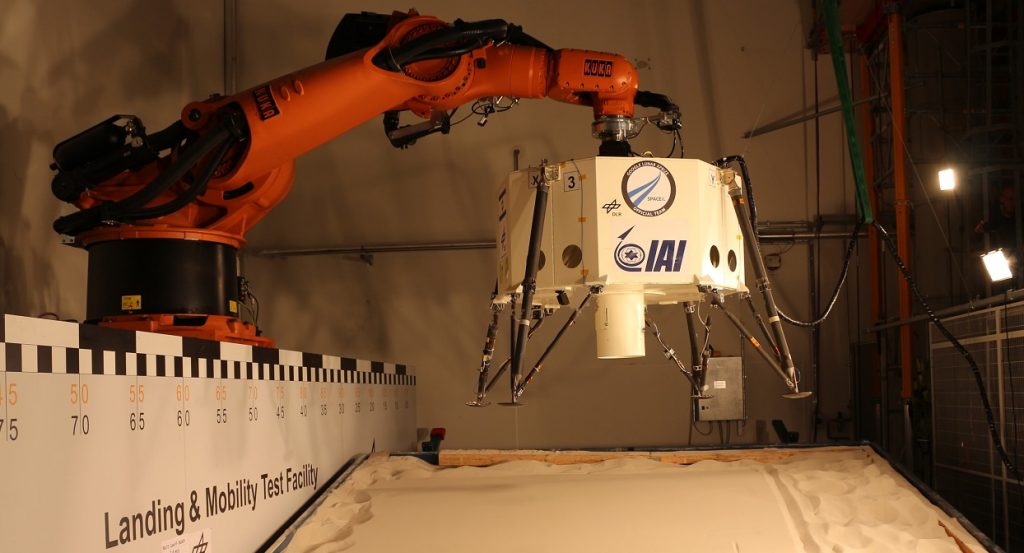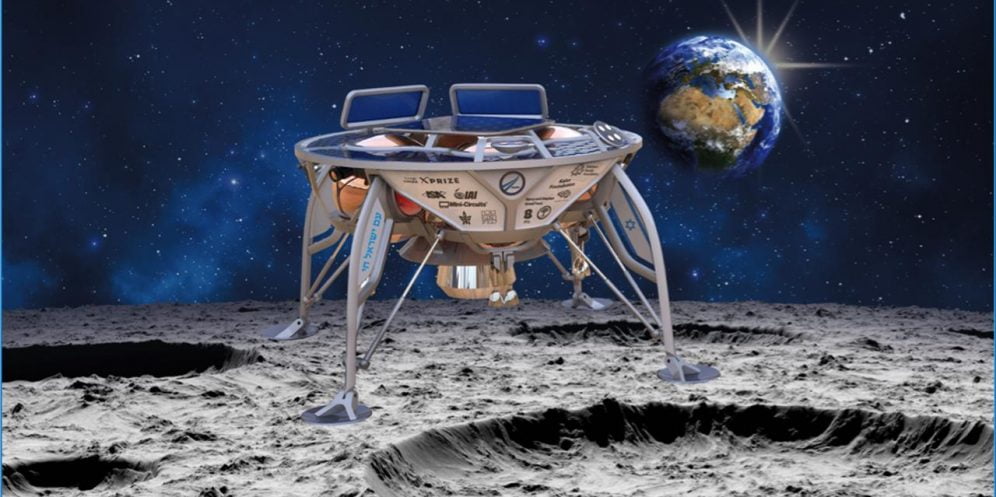Google’s $20 million prize in the prestigious Lunar X Prize competition may have gone unclaimed, as none of the five finalists made the March 31, 2018 deadline to land an unmanned spacecraft on the moon, but some competitors – including Israel – insist their hat is still in the ring, even without the financial incentive.
Israeli startup SpaceIL, one of the five finalists, said last week just three days before the deadline, that it had every intention of forging ahead, with plans to launch its spacecraft on Elon Musk’s SpaceX Falcon 9 via Spaceflight industries later this year.
SpaceIL’s new CEO, Ido Anteby, formerly of the Israel Atomic Energy Commission, said in a statement that the Israeli team was “moving forward with the project, regardless of the terms or status of the Google Lunar X Prize.”
“SpaceIL and Israel Aerospace Industries are committed to landing the first Israeli spacecraft on the moon, and we plan to launch before the end of this year,” Anteby, who replaced Eran Privman as CEO, added. Israel Aerospace Industries (IAI) built and tested the spacecraft developed by SpaceIL and has a financial interest in the venture as one of several investors.
“Our mission was never about winning the prize money – although $20 million would have been nice,” said Anteby. “It’s about showing the next generation that anything is possible – that even our small country can push the limits of imagination. The impact of our spacecraft’s launch and its historic weekslong journey to land on the moon will resonate for years to come, and we hope to inspire new forays into science, technology, and space exploration.”
SEE ALSO: Missions To ‘Mars’ And The Moon: Israel’s Space Sector Is Reaching For The Stars
Israel sought to become the fourth country — after the US, Russia and China — to complete a controlled lunar landing, and was competing against four other teams: Moon Express (USA), Synergy Moon (an international collaboration of 15 countries), TeamIndus (India) and HAKUTO (Japan).
Moon Express, TeamIndus, and HAKUTO have all indicated that they have separate plans and different business models to make it to the moon.
The original competition involved placing a spacecraft on the moon’s surface, traveling 500 meters on the moon, and transmitting high-definition video and images back to Earth. The winner would have won $20 million and the second-place team would have nabbed $5 million.
Israel was the first international team in 2015 to sign a contract with aerospace manufacturer SpaceX and to have its financial and technical details approved by the contest, which started back in 2007 with 33 contenders.
SpaceIL, founded in 2010 by engineers Yariv Bash, Kfir Damari and Yonatan Weintraub, entered the race in 2012 and completed the assembly of its spacecraft, the “Sparrow” last year, ahead of a period of testing. The Sparrow, according to Privman who spoke with NoCamels in December, measured five feet (1.5 meters) tall with a diameter of approximately five feet and weighed some 330 pounds (150 kg) without fuel and over half a ton (600 kg) with fuel.
Sign up for our free weekly newsletter
SubscribeBut even as SpaceIL made the final cut, it’s been a bumpy ride for the Israeli team.
All the teams have been privately funded and SpaceIL initially secured almost $40 million in total financial backing from American casino mogul Sheldon Adelson, the Morris Kahn Foundation, named after the South-African-Israeli billionaire, the Schusterman Family Foundation, Israeli communications giant Bezeq, Tel Aviv University, and IAI. It also raised at least $250,000 through a crowdfunding campaign on Indiegogo in 2014.
Late last year, the Israeli startup announced it had hit a snag and was short of the funds necessary to complete the project, hoping the Israeli government would step in to provide the final $7.5 million in addition to the $22.5 million it had raised. The government appeared receptive to the idea, with Israeli Minister of Science and Technology Ofir Akunis telling NoCamels in January that “it would be a massive achievement for us if we can land on the moon and a great gift for Israel’s 70th birthday” coming up in May.
Akunis made the statement before the XPrize Foundation, the nonprofit organization that manages international competitions to encourage technological development announced in late January that though it “did expect a winner by now, due to the difficulties of fundraising, technical and regulatory challenges,” Google’s grand prize would go unclaimed.
“We are extraordinarily grateful to Google for enabling this 10-year journey with us and for having the foresight and courage to support and catalyze the commercial space industry, which was the ultimate goal of this competition,” the foundation said.
SEE ALSO: Fly Me To The Moon: SpaceIL Launches Funding Plea To Complete Space Race Amid Financial Troubles
It added that one of the more significant impacts of the contest was to have “engaged hundreds of thousands of young people across the globe, sparking an interest in exploration and STEM fields.”
Indeed, SpaceIL had repeatedly said that should it win the competition, it planned to dedicate the prize money to advancing STEM education in Israel.
Yigal Harel, SpaceIL’s VP and the head of its Spacecraft Program, told NoCamels in December that the main goal of the project was to “inspire Israeli kids to learn science, to learn engineering and mathematics because it’s very important for our country.”
To that effect, SpaceIL has already developed educational programs for various age groups and recently launched an interactive site for kids with riddles, games and moon trivia.

Screenshot from http://kids.spaceil.com/en/
Related posts

Editors’ & Readers’ Choice: 10 Favorite NoCamels Articles

Forward Facing: What Does The Future Hold For Israeli High-Tech?

Impact Innovation: Israeli Startups That Could Shape Our Future






Facebook comments